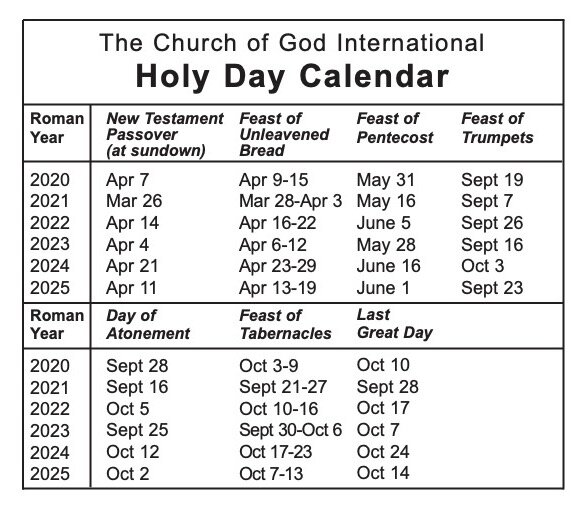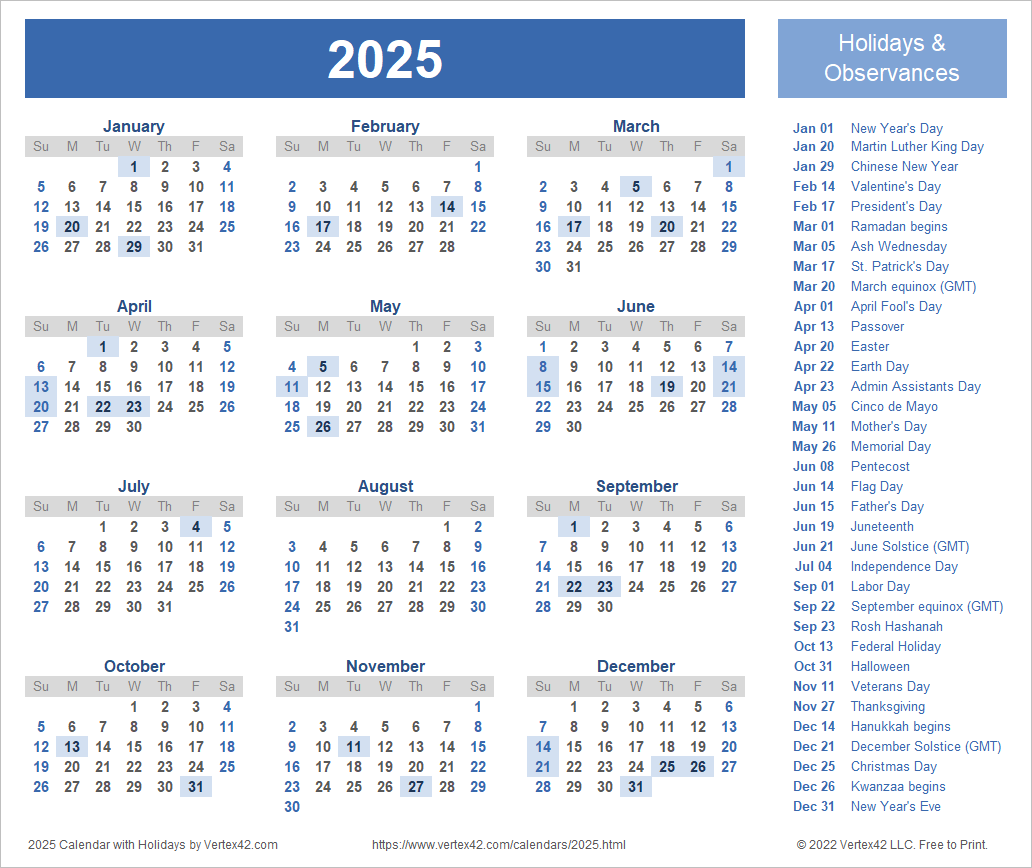2025 Religious Holidays Calendar: A Comprehensive Guide To Global Observances
2025 Religious Holidays Calendar: A Comprehensive Guide to Global Observances
Related Articles: 2025 Religious Holidays Calendar: A Comprehensive Guide to Global Observances
- 2025 USPS Calendar: A Comprehensive Guide
- Shree Mahalakshmi Calendar 2025: A Comprehensive Guide To The Hindu Calendar
- WCPSS Calendar 2025-2026: Year-Round Schedule With 1600 Words
- How To Convert April 4, 2025 To The Lunar Calendar: A Comprehensive Guide
- Cheap 2025 Wall Calendars For Sale
Introduction
In this auspicious occasion, we are delighted to delve into the intriguing topic related to 2025 Religious Holidays Calendar: A Comprehensive Guide to Global Observances. Let’s weave interesting information and offer fresh perspectives to the readers.
Table of Content
Video about 2025 Religious Holidays Calendar: A Comprehensive Guide to Global Observances
2025 Religious Holidays Calendar: A Comprehensive Guide to Global Observances

Introduction
Religious holidays are an integral part of human culture, serving as milestones for spiritual reflection, communal gatherings, and cultural preservation. The year 2025 presents a diverse tapestry of religious observances across the globe, offering an opportunity to delve into the rich traditions and beliefs of various faiths. This comprehensive calendar provides a detailed overview of significant religious holidays scheduled for 2025, encompassing major festivals, holy days, and commemorative events.
January
- January 1: New Year’s Day (Christian)
- January 6: Epiphany (Christian)
- January 15: Makar Sankranti (Hindu)
- January 22: Chinese New Year (Chinese)
February
- February 2: Imbolc (Pagan)
- February 10: Ash Wednesday (Christian)
- February 26: Maha Shivaratri (Hindu)
March
- March 8: International Women’s Day (Non-Religious)
- March 20: Spring Equinox (Pagan)
- March 23: Holi (Hindu)
- March 29: Maundy Thursday (Christian)
- March 30: Good Friday (Christian)
- March 31: Easter Sunday (Christian)
April
- April 5:清明节 (Chinese)
- April 9: Passover (Jewish)
- April 13: Vaisakhi (Sikh)
- April 21: Easter Monday (Christian)
May
- May 1: Beltane (Pagan)
- May 15: Ascension Day (Christian)
- May 24: Pentecost (Christian)
- May 26: Buddha Purnima (Buddhist)
June
- June 1: Children’s Day (Non-Religious)
- June 10: Shavuot (Jewish)
- June 21: Summer Solstice (Pagan)
July
- July 4: Independence Day (Non-Religious)
- July 15: Eid al-Fitr (Muslim)
- July 25: Santiago Apóstol (Christian)
August
- August 1: Lammas (Pagan)
- August 12: Eid al-Adha (Muslim)
- August 15: Assumption of Mary (Christian)
September
- September 1: Rosh Hashanah (Jewish)
- September 10: Yom Kippur (Jewish)
- September 22: Autumn Equinox (Pagan)
- September 29: Sukkot (Jewish)
October
- October 3: Simchat Torah (Jewish)
- October 12: Columbus Day (Non-Religious)
- October 31: Halloween (Pagan)
November
- November 1: All Saints’ Day (Christian)
- November 2: All Souls’ Day (Christian)
- November 11: Diwali (Hindu)
- November 22: Thanksgiving Day (Non-Religious)
December
- December 6: Saint Nicholas Day (Christian)
- December 8: Immaculate Conception (Christian)
- December 21: Winter Solstice (Pagan)
- December 24: Christmas Eve (Christian)
- December 25: Christmas Day (Christian)
- December 26: Boxing Day (Non-Religious)
Cultural Significance
Religious holidays hold immense cultural significance, fostering a sense of community, preserving traditions, and shaping societal values. They provide opportunities for individuals to connect with their faith, engage in spiritual practices, and share customs with others. By observing these holidays, we not only honor our own religious beliefs but also gain a deeper understanding and appreciation of different cultures and traditions.
Inclusivity and Respect
In an increasingly interconnected world, it is essential to approach religious holidays with inclusivity and respect. While some holidays may not hold personal significance, it is important to acknowledge their importance to others and to foster an environment of mutual understanding and tolerance. By embracing the diversity of religious observances, we can build bridges between cultures and create a more harmonious society.
Conclusion
The 2025 religious holidays calendar presents a rich tapestry of spiritual and cultural observances that span the globe. From the joyous celebrations of Diwali to the solemn remembrance of Yom Kippur, these holidays offer a glimpse into the diverse beliefs and traditions that shape our world. By embracing the spirit of inclusivity and respect, we can create a society where all faiths are valued and celebrated.








Closure
Thus, we hope this article has provided valuable insights into 2025 Religious Holidays Calendar: A Comprehensive Guide to Global Observances. We appreciate your attention to our article. See you in our next article!